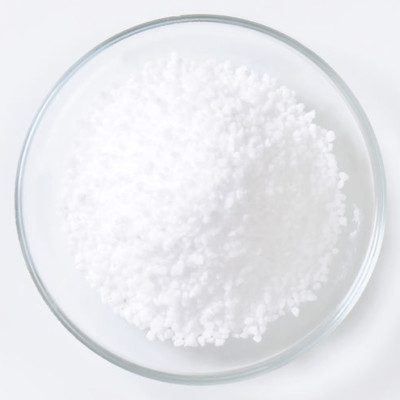Product description
Magnesium lactate is a compound made up of magnesium and lactic acid. It is a highly bioavailable form of magnesium, meaning it is easily absorbed by the body. Magnesium is an essential mineral that plays a critical role in numerous physiological functions, including muscle function, nerve transmission, and energy production. Magnesium lactate is often used as a supplement to correct magnesium deficiencies and support overall health.
Importance of Magnesium:
Magnesium is a vital mineral involved in over 300 biochemical reactions in the body. Some of its most important roles include:
Muscle and Nerve Function: Magnesium is crucial for the contraction and relaxation of muscles, including the heart muscle. It also helps regulate nerve impulses, which are essential for normal brain and nerve function.
Energy Production: Magnesium is involved in the production of ATP (adenosine triphosphate), the primary energy carrier in cells. It supports energy metabolism and is vital for maintaining optimal energy levels.
Bone Health: Magnesium plays a significant role in maintaining bone density and strength. It works synergistically with calcium and vitamin D to promote healthy bones and prevent conditions like osteoporosis.
Heart Health: Magnesium helps regulate blood pressure, maintain a healthy heart rhythm, and support blood vessel function. It is also known to help reduce the risk of cardiovascular disease by preventing calcification of the arteries.
Mood Regulation: Magnesium is involved in the production of neurotransmitters that regulate mood, including serotonin. Adequate magnesium levels may reduce symptoms of anxiety, depression, and stress.
Blood Sugar Regulation: Magnesium supports insulin function, which is critical for controlling blood sugar levels. Adequate magnesium intake may help reduce the risk of type 2 diabetes.
Detoxification and Muscle Recovery: Magnesium helps the body detoxify by supporting the removal of toxins and waste products. It also aids in muscle recovery after exercise by reducing muscle cramps and spasms.
Magnesium Lactate vs. Other Magnesium Forms:
Magnesium lactate is often preferred over other forms of magnesium because it is less likely to cause digestive issues such as diarrhea, which can be common with other forms like magnesium citrate or magnesium oxide. This makes magnesium lactate a good option for individuals who have sensitive stomachs or are prone to digestive discomfort.
Benefits of Magnesium Lactate Supplementation:
Improved Absorption and Bioavailability:
- Magnesium lactate is a highly absorbable form of magnesium. It’s better tolerated by the body compared to other magnesium salts, which may cause gastrointestinal discomfort in some individuals.
- Its high bioavailability ensures that more of the magnesium is effectively absorbed, leading to more pronounced health benefits.
Support for Muscular Function:
- Magnesium is essential for proper muscle function, and magnesium lactate can help prevent muscle cramps, spasms, and stiffness. It is particularly helpful for athletes and individuals who experience leg cramps or muscle soreness.
- Magnesium’s role in muscle relaxation can also help ease tension and reduce the occurrence of muscle-related discomfort, especially in conditions like restless leg syndrome.
Promoting Healthy Sleep:
- Magnesium helps regulate neurotransmitters involved in sleep, such as GABA (gamma-aminobutyric acid). Adequate magnesium intake is linked to improved sleep quality and a reduction in insomnia.
- Magnesium lactate supplementation may help promote relaxation and improve sleep patterns, especially in individuals with magnesium deficiency.
Cardiovascular Health:
- Magnesium helps regulate heart rate and supports blood vessel function, contributing to the prevention of arrhythmias (irregular heartbeats). Magnesium lactate can help maintain healthy blood pressure levels and reduce the risk of hypertension, which is a risk factor for cardiovascular disease.
- Magnesium also supports the elasticity of blood vessels, which helps maintain proper circulation and reduces the risk of plaque buildup in the arteries.
Bone Health:
- Magnesium plays a vital role in calcium metabolism, which is crucial for bone health. Magnesium lactate supports healthy bone density and strength, reducing the risk of osteoporosis and fractures, particularly in older adults.
- It also helps with the activation of vitamin D, which is necessary for calcium absorption in the body.
Mood and Mental Health:
- Magnesium is often referred to as the “relaxation mineral” because of its ability to reduce stress, anxiety, and symptoms of depression. Magnesium lactate supplementation may help alleviate anxiety, reduce stress levels, and improve mood.
- It supports the synthesis of neurotransmitters, including serotonin, which plays a key role in mood regulation.
Blood Sugar Control:
- Magnesium lactate can help regulate insulin sensitivity and improve glucose metabolism. It supports healthy blood sugar levels, making it beneficial for individuals with insulin resistance or those at risk of type 2 diabetes.
- Studies suggest that magnesium supplementation may help lower the risk of developing metabolic syndrome and related conditions like type 2 diabetes.
Digestive Health:
- Magnesium supports proper digestion by relaxing the muscles in the gastrointestinal tract. This can help prevent constipation and promote regular bowel movements.
- Magnesium lactate is gentler on the digestive system compared to other magnesium forms, making it a good option for individuals with sensitive digestive systems.
Recommended Dosage:
The recommended daily intake of magnesium varies by age, sex, and health status. In general, the average adult needs about 300-400 mg of magnesium per day, with higher amounts required for pregnant women or individuals with certain health conditions. The exact dosage of magnesium lactate should be based on individual needs and should be taken under the guidance of a healthcare professional, especially for those with existing health issues like kidney disease.
Sources of Magnesium:
While magnesium lactate supplements are an excellent option for boosting magnesium intake, magnesium is also naturally found in a variety of foods. Some dietary sources of magnesium include:
- Leafy green vegetables (e.g., spinach, kale)
- Nuts and seeds (e.g., almonds, sunflower seeds)
- Whole grains (e.g., brown rice, oats)
- Legumes (e.g., black beans, lentils)
- Avocados
- Bananas
- Fish (e.g., salmon, mackerel)
Side Effects and Precautions:
Magnesium lactate is generally well-tolerated when taken in appropriate doses. However, excessive magnesium intake can lead to side effects such as:
- Diarrhea (though this is less common with magnesium lactate compared to other forms)
- Nausea
- Stomach cramps
Individuals with kidney disease or other health conditions should consult their healthcare provider before taking magnesium supplements, as impaired kidney function can affect magnesium levels in the body.


